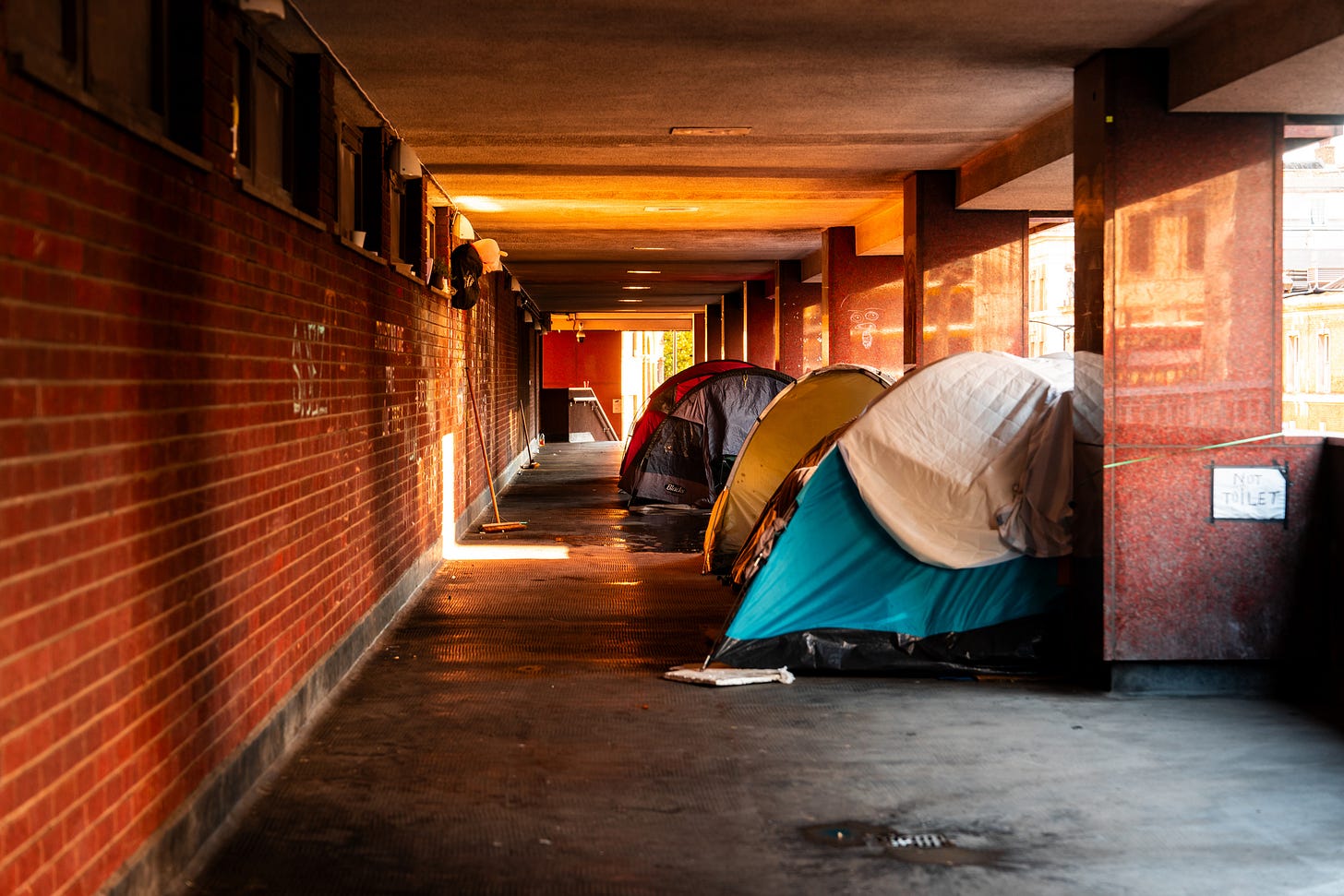When the minimum wage is not a livable wage in any state in the union, that is economic injustice.
When almost 1 million Americans are homeless while 15 million homes are vacant, that is economic injustice.
When one of the wealthiest people in America earns $8 million per hour, yes, per hour, while 50 million people, including some of his own employees, rely on federal food assistance to keep from going hungry, that is economic injustice.
It isn’t that these outcomes are inevitable or that the problems are impossible to solve. We’ve simply chosen not to. America could be a nation where no one goes hungry, homeless, or without proper medical care. Everyone could have access to quality education, gainful employment, and a secure retirement. And it can be accomplished while remaining a capitalist nation where people can make it rich and spend or invest their money however they wish.
Ensuring that no one is left behind does not prevent anyone from getting ahead.
Over a series of articles, I hope to convince you that:
America is more efficient with a federally guaranteed minimum income that also serves as a Social Security for all, instead of the web of federal aid programs we have today.
Merit-based systems are powerful motivators, and people deserve to be compensated for their contributions, but the self-made man is a myth. There must be soft ceilings and hard floors.
Taxes are great. They are an investment in your future, and when spent properly, they increase your prosperity, not diminish it.
Workers deserve to share their company's success and have a say in its future. This includes benefiting from productivity gains.
Quality public education is the foundation for a prosperous society.
And most importantly, all these solutions are practical and feasible.
In 1797, Thomas Paine wrote about providing a yearly stipend for people 50 and older and for those with disabilities. It would take another 138 years before this idea was put into practice when Franklin Delano Roosevelt enacted Social Security in 1935.
In the same pamphlet, Agrarian Justice, Paine argued a simple premise: the Earth was humankind’s natural inheritance. We had been able to freely live off the land before cultivation created private property. While cultivation brought great benefits, it also created poverty.
Instead of going after those who own the land and amassed wealth, Paine blames the system. His solution is to tax property when someone dies, before ownership is transferred to another. He says this is “the least troublesome and the most effectual” because “the bequether gives nothing; the receiver pays nothing.” We know this concept today as an estate tax. Paine’s plan is to use this tax to create a fund that would grant a lump sum of money to every American when they reach the age of adulthood and provide for his version of Social Security.
The same Founding Father who wrote the words that ignited the American Revolution, strongly advocated for free markets and individual freedoms, and wrote that government should be designed to have the “least expense and greatest benefit” to the people also proposed a version of universal basic income as a means of fixing the poverty that capitalism creates. Does that sound like scary socialism or simply common sense?
Many great minds have discussed the philosophical reasons for ensuring citizens are guaranteed a minimum quality of living. Declaring it to be the moral or just thing to do isn’t how change is made, or we wouldn’t have the extreme inequality, hunger, and homelessness we do today. After all, it took a Civil War to end slavery and over a decade filled with violence for the Civil Rights Movement to succeed.
Everyone has their own problems, points of view, and belief systems, religious or otherwise. We can’t expect others to simply accept why our plan is the right one. We must show them how these changes benefit them, even if they aren’t directly affected.
If someone has finished their education, has a solid job, and no kids, you are less likely to convince them that they should pay taxes to fund public education with the belief that every person has a right to access the knowledge humanity has amassed over thousands of years, than if you were to show them how access to quality education reduces crime, reduces reliance on federal aid programs, and boosts the economy.
Showing that everyone benefits from an improved education system, not just those enrolled in it, is how you get people to support it.
When we are a government of the people, by the people, and for the people, and we pay the taxes that fund it, we, the public, should be discussing how that money is spent. We should want everyone involved in this conversation. The problems must be clearly defined, the language plain, and the solutions fair. Invite debate and criticism, don’t attempt to silence it. Find the compromise that moves our society forward while believing that one day we can achieve it all.
It begins with a conversation. I submit that America’s most significant fundamental problem is economic injustice, and addressing it will end more suffering and create more prosperity than tackling any other issue. Let’s discuss this, starting with why a guaranteed minimum income and Social Security For All creates a more efficient and effective government.



